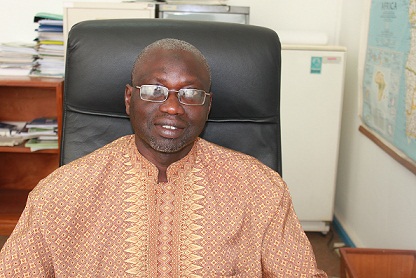The Senior Forestry Officer of the Food and Agricultural Organization (FAO) in Ghana, Mr. Foday Bojang, has called for a humanistic approach to efforts geared towards conserving forests in Africa.
Mr. Foday Bojang, who was speaking in an interview with Diplomatic Call, called on Governments to implement policies that encourage local communities and the private sector involved in forestry by giving stakeholders access to the benefits derived from the forest sector.
“It is only when people can perceive the benefits in a particular engagement that they will be encouraged to continue doing it“, he said.
Mr. Bojang identified the pressures of population growth, pressures from infrastructural development, settlement expansions, forest fires and the conversion of forest for agricultural purposes as main challenges accounting for the sector’s precarious nature in Africa.
He explained that “people do not deliberately attack the forest; they only do that because they have needs to be met. If they are provided other alternatives they would certainly love to leave their forests standing so that they can benefit from it for a much longer time.”
“Naturally in societies, people tend to put aside advice, policies and laws for their own individual benefits, and that is not peculiar to Ghana, it happens everywhere. If they are provided with other alternatives, majority of the people will listen [to our message of forest protection] and they will definitely pay respect to the forest” he added.
Mr. Bojang also warned that depletion of the forests have serious short and long-term implications and called for effective and pragmatic steps to be taken in order to sustain the forest.
“In Africa more than 80% of our domestic energy is derived from the forest in the form of charcoal and firewood. Apart from that, protecting the forest also helps to avoid siltation of water bodies in the future” he explained.
Mr. Foday Bojang also commended the government of Ghana for its commitment towards ensuring the sustenance and protection of its forest reserves and called for adequate funding in resource allocation, financial resources and human resources.
Mr. Bojang’s passionate appeal comes in the wake of the impending International Day of Forest (IDF) which is to be marked globally on the 21st of March, 2014.
The International Day Forest (IDF) celebrates and raises awareness on the importance of all types of forests and its significance to human livelihoods.
On this day, countries are encouraged to undertake local, national and international efforts to organize activities involving forests and trees, particularly tree planting campaigns and also employing the various media tools available to disseminate information on the importance of forestry.
Mr. Bojang explained that even though 21st of March is the date proclaimed by the United Nation General Assembly, “the resolution allows countries to continue with the activity throughout the year looking for particular times that are more convenient, especially for tree planting.”
He elaborated that “in Ghana for instance, tree planting activities may start sometime in June-July, so the country could celebrate the day of forest during this period by involving local communities in tree planting activities.”
The FAO forestry department is a subsidiary of the Food and Agricultural Organization which ensures the global implementation of sustainable forest resource management.
Its main objectives include, creating awareness on forest protection, forest assessment, evaluation of the impact of forestry and promotion of the economic value of forestry to national development.
The Forest Department of FAO in Rome liaises with the office in Accra to engage in activities aimed towards awareness creation and strengthening policies and capacity to tackle forestry issues in Ghana.
By Prince Asare, Diplomatic Call.
























